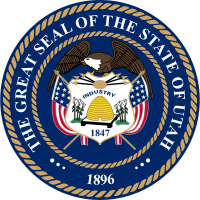June 22, 2017 •
Utah Special Election Process Might Face Legal Challenge
The United Utah Party, a state party created at the end of May, will likely file suit to compel the Utah Elections Office to certify its candidate for the 3rd Congressional District after the office refused to permit the candidate […]
 The United Utah Party, a state party created at the end of May, will likely file suit to compel the Utah Elections Office to certify its candidate for the 3rd Congressional District after the office refused to permit the candidate to file provisionally before the United Utah Party’s qualified party status was certified.
The United Utah Party, a state party created at the end of May, will likely file suit to compel the Utah Elections Office to certify its candidate for the 3rd Congressional District after the office refused to permit the candidate to file provisionally before the United Utah Party’s qualified party status was certified.
The United Utah Party and Utah lawmakers are unhappy with the special election process and timeline Gov. Gary Herbert has chosen for the special election to replace Rep. Jason Chaffetz. Lawmakers originally wanted a special session of the Legislature to clarify the process as none is set by state law, but Gov. Herbert refused.
Utah House leaders reached out to State Attorney General Sean Reyes for a legal opinion on whether Gov. Herbert’s process was valid, but Gov. Herbert moved to block the opinion stating the Attorney General represents his office and not the Legislature.
Utah law establishes a 300-day process for a special election to fill a congressional vacancy. Lawmakers and state and local officials are concerned the abbreviated timeline Gov. Herbert set for this special election violates the law and could be rejected with high costs to counties who will start mailing primary ballots by the end of the month.
Rep. Jason Chaffetz will remain in office until June 30, 2017. The Governor’s office believes the process is legal and has approval from the U.S. Department of Justice and Congress.
State and Federal Communications, Inc. provides research and consulting services for government relations professionals on lobbying laws, procurement lobbying laws, political contribution laws in the United States and Canada. Learn more by visiting stateandfed.com.

